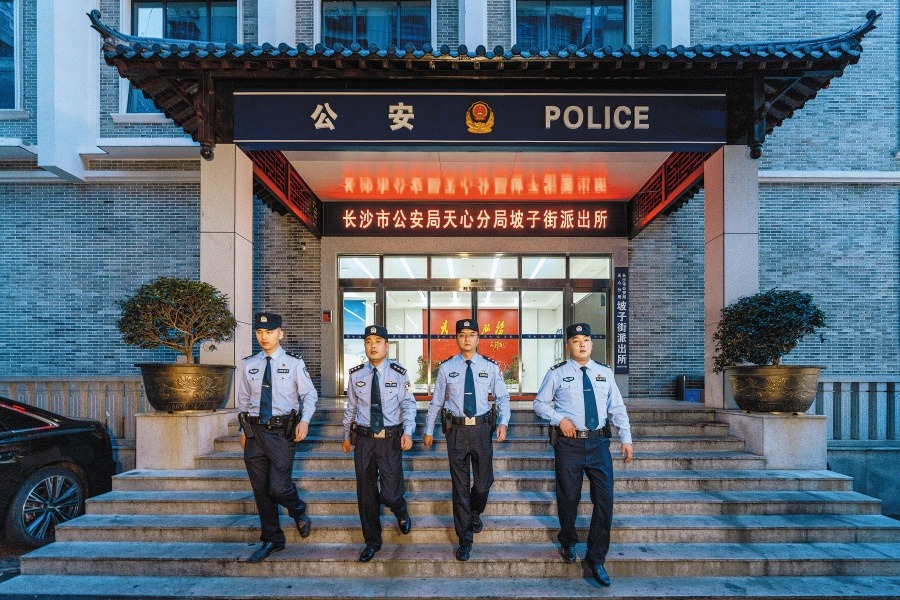Volunteer groups crochet woolen bouquets for Games medalists
By YANG WANLI | CHINA DAILY/XINHUA | Updated: 2022-02-10 07:43

Medal winners at the Beijing 2022 Olympic and Paralympic Winter Games are presented with woolen bouquets, crocheted over several months by dedicated groups of volunteers, that include retired workers and disabled and elderly people.
At previous Games, fresh flowers were used for the medal presentation ceremonies. However, the traditional Shanghai crocheted bouquets don't wilt and will be more permanent reminders of the Beijing Games.
The Shanghai bouquet came about in the mid-19th century when practitioners in Shanghai, a global entrepot, fused Chinese and Western techniques, according to Agence France-Presse.
The woolen bouquets include representations of seven flowers and plants: the rugosa rose; Chinese rose; hydrangea; lily of the valley; laurels; sweet osmanthus; and olive branches. They represent friendship, perseverance, happiness, unity, victory, bounty and peace, said Lin Cunzhen who designed the emblems for the Beijing Winter Olympics.
At a news conference on Wednesday, Lin said the bouquets for the Paralympics will be modified to add the perennial coreopsis, a type of daisy, to represent bravery.
Gao Tian, deputy director of the culture and ceremonies department of the Beijing Organising Committee of the 2022 Games, said medalists who have already received the woolen bouquets have been impressed with the design. "I've seen many medalists take photos with the bouquets close to their faces or held high above their heads. I think they must be happy to get this special souvenir," she said at the news conference.
A total of 1,251 bouquets are needed for the medal winners at the Beijing Winter Olympics and Paralympics.
Each flower is handmade, which requires time and manpower.
"It takes 20 minutes to crochet a rose petal. A rose consists of 10 petals, three leaves and one stem. A crocheter needs to spend at least five hours on one rose," said Li Meili, 70, an inheritor of the traditional Shanghai wool-crocheting technique, who designed the bouquet.
Li said it takes 35 hours to make an entire bouquet.
After she retired, Li started learning to crochet in her fifties. She crocheted bouquets for the China International Import Exposition and the 10th China Flower Expo last year, which were well received by visitors.
Shanghai wool manufacturer Hengyuanxiang Group recruited groups of crocheters in Beijing, Shanghai, Tianjin, and Zhejiang and Jiangsu provinces to join the project.
Li is responsible for personnel training, quality control and the final assembly of the bouquets.
In order to ensure the consistency of the bouquets, each group is allocated one or two types of flowers, which are sent to Hengyuanxiang's headquarters for assembly after they are completed.
A volunteer crocheting group in Shanghai responsible for producing the roses in the bouquets, has members ranging in age from 31 to 81.
"I'm not a sports fan. But I will follow this year's Winter Olympics as well as the Paralympics because I felt so proud to have this precious opportunity to participate in the two events myself," 81-year-old Mu Guoying told the news portal The-Paper.cn in a recent interview.
About 150 disabled people also helped make the bouquets, including several people from the Beijing Spinal Cord Injury Care Center.
"The last procedure in making a flower is to check whether it has any sharp parts," said Guo Yuanyuan from the center, adding that they did not want any recipients to feel discomfort.
The organizing committee said the woolen bouquets not only replicate the natural bouquets used in previous Olympic victory ceremonies, but they also implement the concept of sustainability.
On Sunday, all five members of China's team that won the 2,000-meter short track skating mixed relay were presented with the crocheted bouquets during the victory ceremony at Beijing Medals Plaza.
Team member Qu Chunyu said she had seen a documentary on the woolen bouquets and knew how they were made and the meaning behind them. "The bouquet implies warmth and harmony. It can be preserved forever and become 'the everlasting Olympic flower'. We will keep them carefully," Qu said in an interview with the Xinmin Evening News.
Li, the inheritor of the wool-crocheting technique, said she had been strict about production standards and the quality of the bouquets. "I chose thin wool. The crocheting will be slower, but the bouquets will look more exquisite," she said.
Xinhua contributed to this story.
























